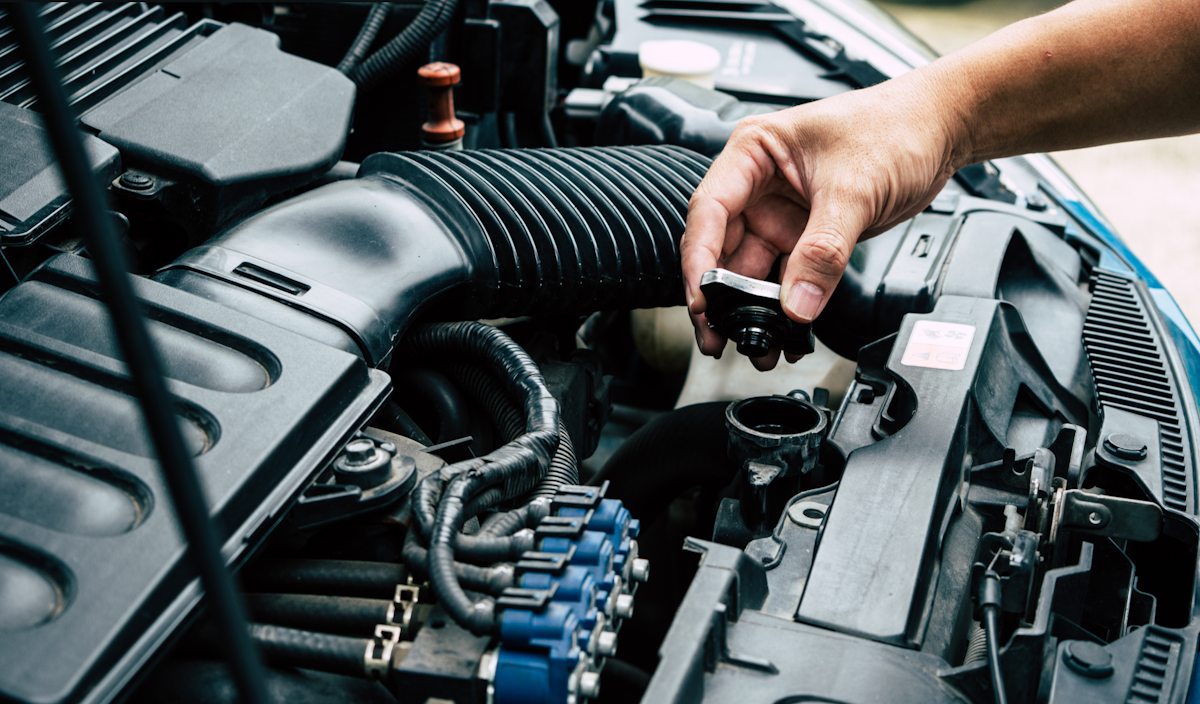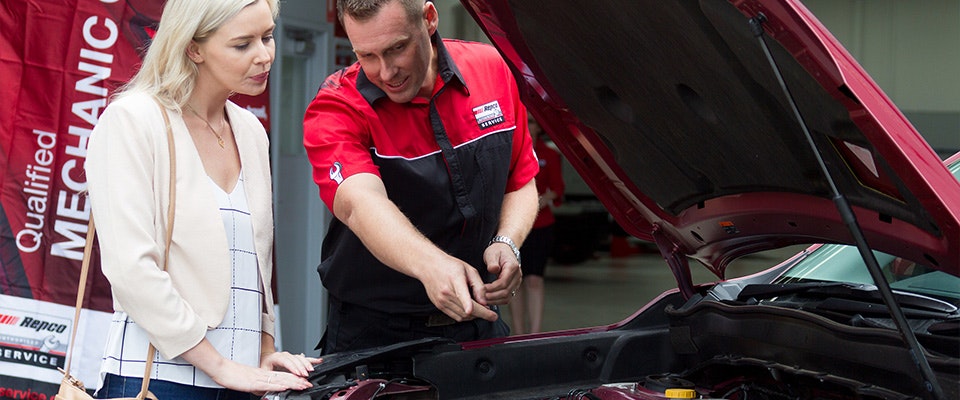
New Car Service in Cessnock
Expert car servicing in Cessnock. Maintain your warranty with high-quality, manufacturer-approved service from the trusted team at Peter Mann Automotive. Book your service today!
Read moreYou never want to find yourself broken down on the freeway with steam pouring from under the hood.

Don't blame hot weather for your car overheating, your engine gives off heat, a lot of heat, and it's the cooling system and radiator that stops your car, and you, from being damaged by all that heat. A coolant fluid in the system also prevents liquids from freezing and protects the system from rust and corrosion as well.
Do you notice puddles under your car? Does your temp gauge read hotter than normal? Is your car overheating? Then it is time to have your cooling system inspected by a professional.
And we can perform a well deserved service on your radiator and cooling system. Our fully trained team of experts will properly flush your radiator, using a fluid designed to clear out any build up. After the cooling system is flushed through, the solution is emptied and the system filled with fresh coolant solution, your car's cooling system will be running like a dream: a radiator flush might be just what your car needs to bring it back to peak performance.

Your manufacturer's log book will recommend how regularly your radiator should be flushed, It is commonly suggested that you flush your coolant system every two years or 40,000 km's depending on which comes first. However, your engine type and size, local seasons, the condition of your existing coolant, and the total distance driven all affect how regular you have to replace the coolant in your radiator.
At Peter Mann Automotive, at your request we will perform a full 65 Point Vehicle Inspection Report for free as part of any minor, major or log book service on your vehicle. This includes checking the level and condition of coolant in your system and the written report will tell you if we feel a radiator flush, coolant replacement or any repairs are recommended to maintain the safety and performance of your vehicle.
Eventually rust and scale deposits collect and the whole system becomes jammed up and not so effective at cooling and protecting your car. This build up of rust and debris can damage important components of your cooling system including your water pump, radiator, hoses and thermostat, reducing the life of those parts and leading to expensive repairs or replacements in the future.
While there are a lot of websites giving advice on how to flush a radiator yourself - we don't recommend it. Today's vehicles are complex and mistakes like incomplete flushing or changing the coolant in your vehicle without flushing can stir up the deposits and cause blockages in your thermostat or radiator. It's best to have your systems checked regularly by a qualified mechanic, and properly flushed before being refilled with the right type of coolant, the system purged of any air pockets, and then the whole system tested by an expert again to ensure full working order and to prevent any costly breakdowns in the future. Radiator coolant is toxic and needs to be handled very carefully. It smells sweet which can be attractive to children and pets so proper storage is very important - letting a professional do this job for you means not handling or having dangerous chemicals around your house. Dangerous coolant also needs to be disposed of safely, professional workshops can have the coolant recycled or properly disposed of to save the environment.
If your car is feeling the heat, see the team at Peter Mann Automotive for a radiator flush today!

What causes a radiator to fail?
A radiator can fail due to several reasons, including corrosion, which is often caused by old or improperly maintained coolant. Over time, rust and debris can build up and clog the radiator, reducing its effectiveness. Physical damage, such as cracks or leaks, can occur from impacts or constant vibration. Poor manufacturing quality or materials can also lead to premature failure. Additionally, issues like a malfunctioning thermostat, water pump failure, or blocked hoses can contribute to radiator problems by causing overheating and excessive pressure. Regular maintenance and timely repairs are essential to prevent radiator failure and ensure optimal engine performance.
What is stray current?
Stray current refers to unintended electrical current that flows through the cooling system, usually due to a fault or an improper grounding in the vehicle's electrical system. This phenomenon can cause accelerated corrosion and degradation of the radiator and other cooling components. Stray current often occurs when there is a poor connection or a short circuit, leading to electrical charges finding a path through the coolant or metal parts. It is important to address stray current issues promptly to avoid significant damage and ensure the longevity of the cooling system. Regular checks and maintenance can help in identifying and mitigating stray current problems.
Why is my car's coolant milky?
A milky appearance in your car's coolant often indicates the presence of oil, suggesting a possible issue such as a blown head gasket, cracked engine block, or damaged cylinder head. These conditions allow oil to mix with the coolant, leading to the milky discoloration. Addressing this issue promptly is crucial, as it can result in engine overheating and significant damage if left unresolved. A thorough inspection by a qualified mechanic can identify the exact cause and necessary repairs to prevent further complications.
Why are there black flecks in the coolant?
Black flecks in the coolant are often a sign of contamination, usually stemming from internal engine issues. These flecks could be particles of rust, debris from deteriorating hoses, or fragments of a deteriorating gasket or seal. Over time, components like the radiator, water pump, or cylinder head gasket can degrade, shedding materials into the coolant. This contamination can impede the cooling system's efficiency, potentially leading to overheating and more serious engine damage if not addressed promptly. Regular maintenance and timely replacement of coolant and worn parts can help prevent such issues.
What happens if I don't replace my leaking radiator?
If you don't replace your leaking radiator, the coolant levels in your vehicle will gradually decrease, which can lead to engine overheating. Overheating can cause significant damage, such as warped cylinder heads, engine block cracks, and failure of other essential components. Additionally, a leaking radiator can lead to corrosion and rust within the cooling system, further compromising its effectiveness. Ignoring the issue can result in costly repairs and potential breakdowns, leaving you stranded and facing inconvenient and expensive fixes. It’s crucial to address a leaking radiator promptly to maintain your vehicle’s performance and longevity.
What is a radiator flush and do I need one?
A radiator flush is a maintenance procedure for your vehicle's cooling system where old coolant and any accumulated debris or contaminants are removed. Fresh coolant is then added to ensure efficient heat dissipation and prevent engine overheating. Over time, coolant can degrade and form deposits that clog the radiator, reducing its effectiveness. Regular radiator flushes, typically recommended every 45,000 km or as specified in your vehicle's manual, help maintain optimal engine performance and longevity. If you've noticed overheating issues, rusty or discoloured coolant, or haven't had a flush in a while, it might be time for this essential service.
How do I check my car's cooling system?
To check your car's cooling system, start by ensuring the engine is completely cool to avoid burns. Open the hood and locate the radiator and coolant reservoir. Inspect the radiator for any visible leaks or damage. Check the coolant level in the reservoir; it should be between the MIN and MAX lines. If it's low, add the appropriate type of coolant mixed with water as specified in your vehicle's manual. Examine hoses for cracks, leaks, or signs of wear. Finally, start the engine and let it run for a few minutes while monitoring the temperature gauge on the dashboard to ensure it's within normal operating range. If you notice any issues, consult a professional mechanic for further inspection.

Expert car servicing in Cessnock. Maintain your warranty with high-quality, manufacturer-approved service from the trusted team at Peter Mann Automotive. Book your service today!
Read more
A fully functional radiator and cooling system is essential in preventing overheating that can cause expensive breakdowns and serious engine damage. Peter Mann Automotive can check your radiator and cooling system for problems and advise you of your best options...
Read more
We always give our best, in car service and customer service. Peter Mann Automotive (MVRL19288) are an independent family owned and operated Car service Centre in Cessnock NSW with good old fashioned values.
Read more